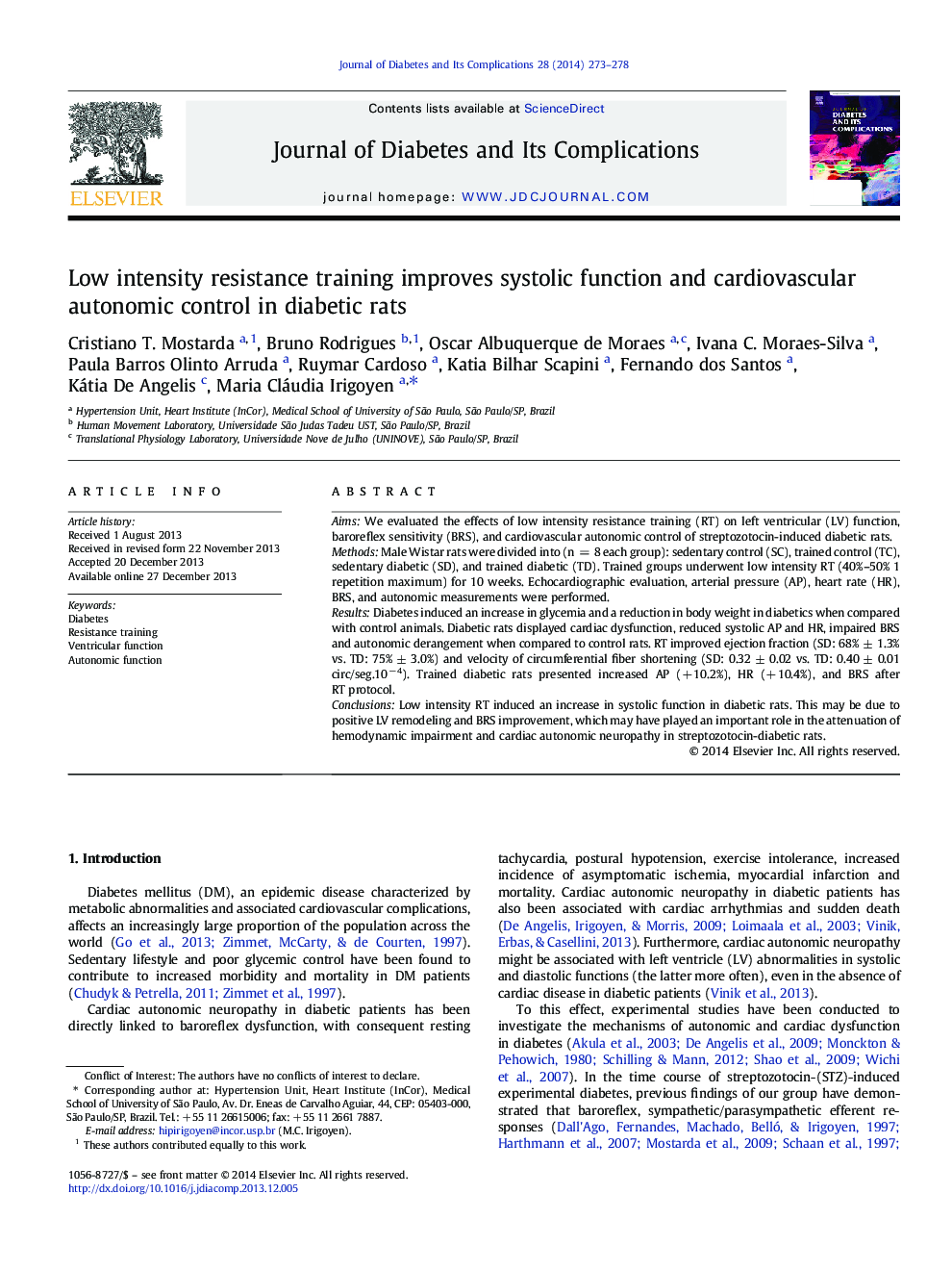| Article ID | Journal | Published Year | Pages | File Type |
|---|---|---|---|---|
| 5902576 | Journal of Diabetes and its Complications | 2014 | 6 Pages |
AimsWe evaluated the effects of low intensity resistance training (RT) on left ventricular (LV) function, baroreflex sensitivity (BRS), and cardiovascular autonomic control of streptozotocin-induced diabetic rats.MethodsMale Wistar rats were divided into (n = 8 each group): sedentary control (SC), trained control (TC), sedentary diabetic (SD), and trained diabetic (TD). Trained groups underwent low intensity RT (40%-50% 1 repetition maximum) for 10 weeks. Echocardiographic evaluation, arterial pressure (AP), heart rate (HR), BRS, and autonomic measurements were performed.ResultsDiabetes induced an increase in glycemia and a reduction in body weight in diabetics when compared with control animals. Diabetic rats displayed cardiac dysfunction, reduced systolic AP and HR, impaired BRS and autonomic derangement when compared to control rats. RT improved ejection fraction (SD: 68% ± 1.3% vs. TD: 75% ± 3.0%) and velocity of circumferential fiber shortening (SD: 0.32 ± 0.02 vs. TD: 0.40 ± 0.01 circ/seg.10â 4). Trained diabetic rats presented increased AP (+ 10.2%), HR (+ 10.4%), and BRS after RT protocol.ConclusionsLow intensity RT induced an increase in systolic function in diabetic rats. This may be due to positive LV remodeling and BRS improvement, which may have played an important role in the attenuation of hemodynamic impairment and cardiac autonomic neuropathy in streptozotocin-diabetic rats.
